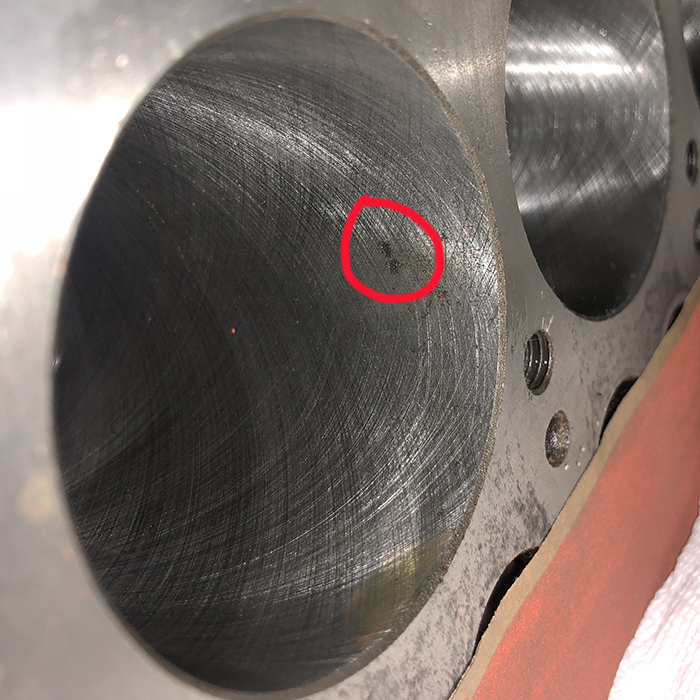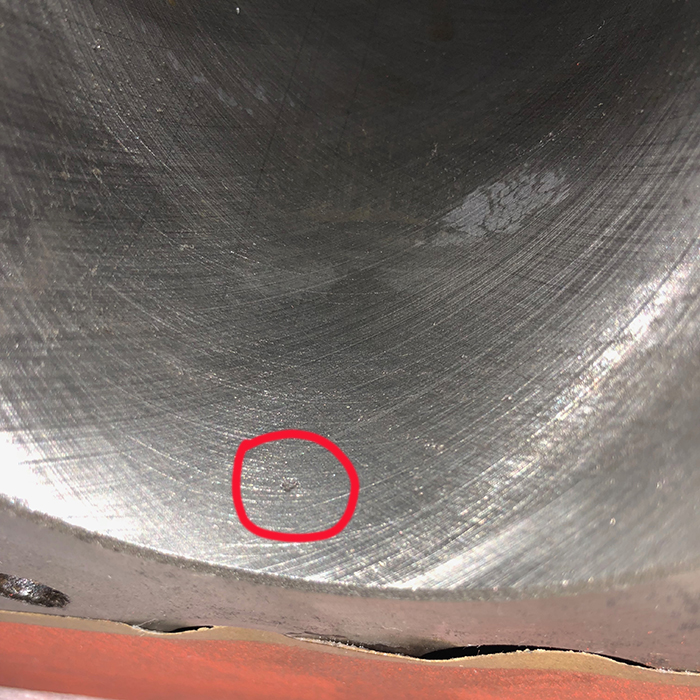Hi folks
Finishing up my first overhaul - a fun/fascinating/frustrating experience. Thank you to everyone who has offered advice along the way.
Had the cylinders rebored (0.010) by the local machine shop. The job was supposed to be done last July, but wasn't done until November, and I couldn't pick it up until this July.
When I picked up the block there were a few tiny black spots in the cylinder walls, which I assumed were just dirt or carbon I could clean with carb cleaner. When I did clean them, just before installing the pistons, I found some small nicks (see photos). My fingernail catches on them.
Is this a problem? If so, how big?


Finishing up my first overhaul - a fun/fascinating/frustrating experience. Thank you to everyone who has offered advice along the way.
Had the cylinders rebored (0.010) by the local machine shop. The job was supposed to be done last July, but wasn't done until November, and I couldn't pick it up until this July.
When I picked up the block there were a few tiny black spots in the cylinder walls, which I assumed were just dirt or carbon I could clean with carb cleaner. When I did clean them, just before installing the pistons, I found some small nicks (see photos). My fingernail catches on them.
Is this a problem? If so, how big?


Comment